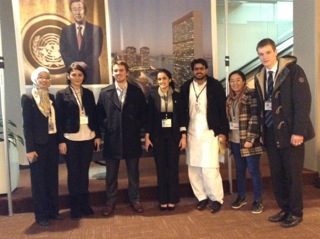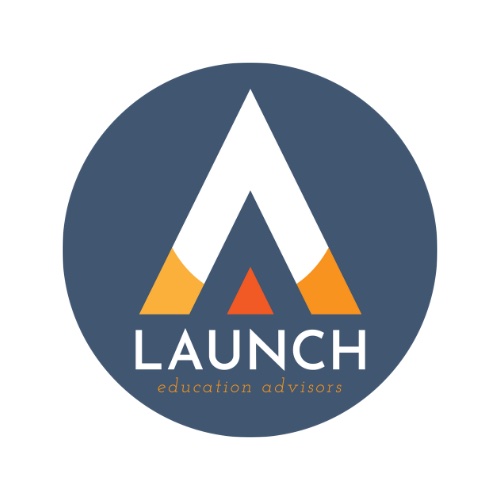Focus on Malaria - NetWorks
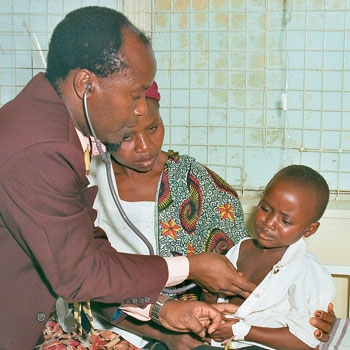 As a United Nations accredited non-governmental organization with consultative status with the Economic and Social Council, FAWCO has an obligation to work for a better world and to help achieve the 8 Millennium Development Goals. We have long realized that to be effective and make a significant impact on the MDGs, it would be best to focus mainly on one MDG. Malaria seemed to be the logical choice, since it is an attainable goal and one that FAWCO could easily influence. Malaria is a preventable tragedy that impacts so many other problems – health, child mortality, poverty and hunger, primary school education, maternal health, the environment - probably 7 of the 8 MDGs.
As a United Nations accredited non-governmental organization with consultative status with the Economic and Social Council, FAWCO has an obligation to work for a better world and to help achieve the 8 Millennium Development Goals. We have long realized that to be effective and make a significant impact on the MDGs, it would be best to focus mainly on one MDG. Malaria seemed to be the logical choice, since it is an attainable goal and one that FAWCO could easily influence. Malaria is a preventable tragedy that impacts so many other problems – health, child mortality, poverty and hunger, primary school education, maternal health, the environment - probably 7 of the 8 MDGs.
On March 18, 2005 the delegates to the FAWCO conference in Birmingham, England were asked if they would like to pull together on one MDG project – so that together we could try to make - not a small difference - but a big impact. They responded with an enthusiastic yes to tackling malaria prevention together! Since its founding in 1931, FAWCO has worked for the well being of children - so it is appropriate that for our first joint global effort we focus on malaria – the single largest killer of children in the world.
Commitment to Malaria Eradication
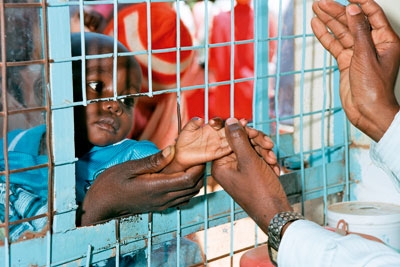 At the 2005 FAWCO Conference in Birmingham , the delegates committed to take on one of the world’s great problems and unanimously agreed to: “take up the global challenge for reducing poverty and improving lives by promoting and supporting the Millennium Development Goals. More specifically, they resolved to address the tragedy of malaria by encouraging FAWCO's members to make a significant commitment to worldwide malaria prevention." Over $100,000 was raised the first year for the purchase of insecticide treated bed nets.
At the 2005 FAWCO Conference in Birmingham , the delegates committed to take on one of the world’s great problems and unanimously agreed to: “take up the global challenge for reducing poverty and improving lives by promoting and supporting the Millennium Development Goals. More specifically, they resolved to address the tragedy of malaria by encouraging FAWCO's members to make a significant commitment to worldwide malaria prevention." Over $100,000 was raised the first year for the purchase of insecticide treated bed nets.
From May 2006 to May 2007, FAWCO's Global Concerns Fund continued this focus on malaria eradication raising over $40,000 for integrated malaria prevention.
At the FAWCO biennial Conference in Lyon in 2007 , the delegates once again re-affirmed this commitment to malaria eradication by unanimous vote of FAWCO’s Resolutions and Recommendations with a continued commitment; "encouraging our members to focus on malaria, the single largest killer of children". With this resolution, fund raising and awareness raising will continue at least up until the 2009 FAWCO Conference.
Beginning in 2005, FAWCO partnered with the Swiss Foundation BioVision in support of their integrated approach to malaria prevention in pilot projects in Africa. FAWCO’s partnership with BioVision was enthusiastically supported by member organizations and individuals and as a result, thousands of children have lived to see their 5th birthday and beyond.
In total, FAWCO distributed $165,885 for the purchase of insecticide treated bed nets and integrated malaria prevention. Additionally, FAWCO applied for and received a $100,000 grant from the Hilton Foundation that was paid directly to our partner Biovision in 2008, for a grand total of $265,885.
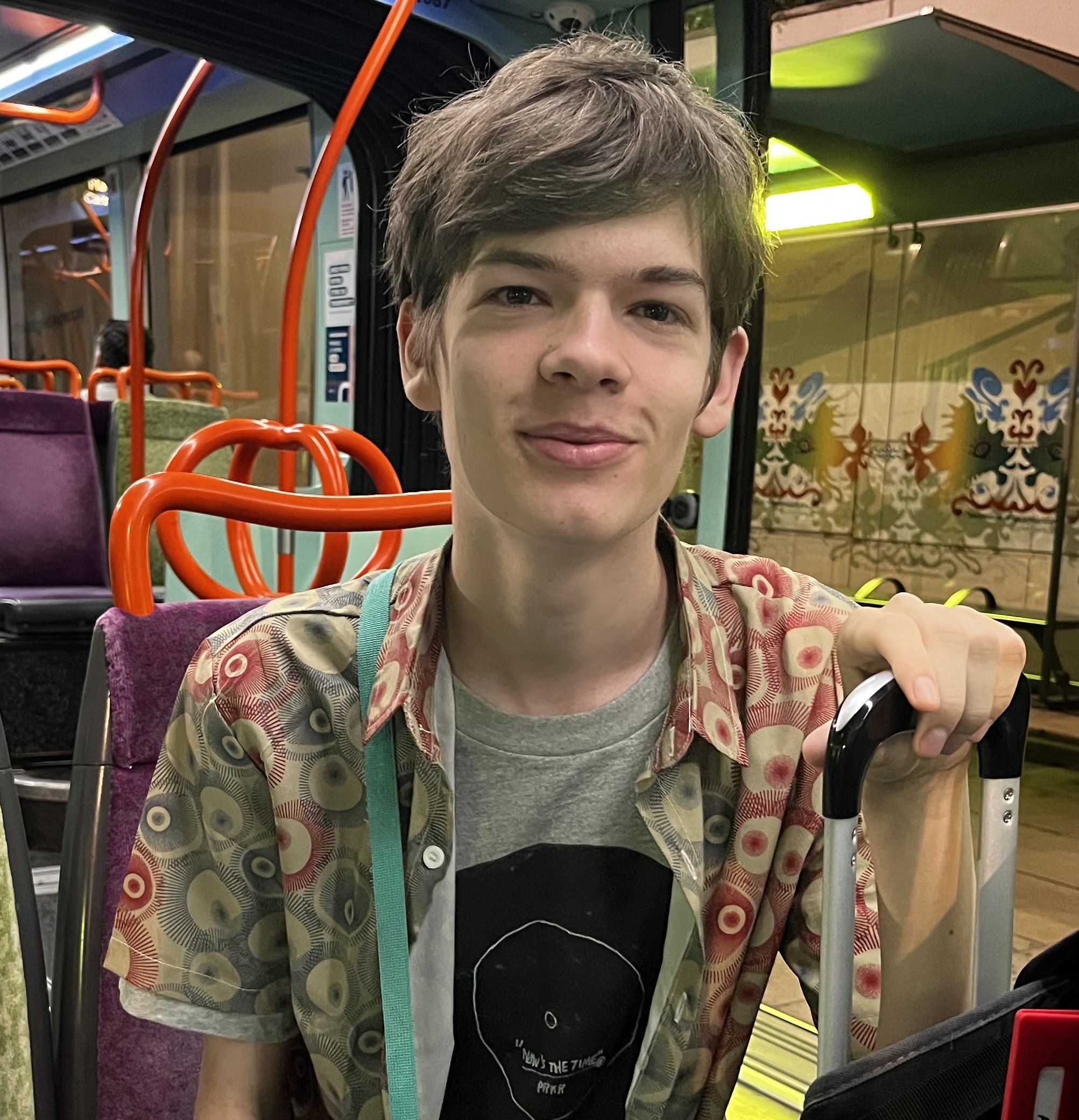 One “human right” that I disagree with is Article 17m which is the “right to own things.” It states: “Everyone has the right to own property alone as well as in association with others. No one shall be arbitrarily deprived of his property.”
One “human right” that I disagree with is Article 17m which is the “right to own things.” It states: “Everyone has the right to own property alone as well as in association with others. No one shall be arbitrarily deprived of his property.”
 As a United Nations accredited non-governmental organization with consultative status with the Economic and Social Council, FAWCO has an obligation to work for a better world and to help achieve the 8 Millennium Development Goals. We have long realized that to be effective and make a significant impact on the MDGs, it would be best to focus mainly on one MDG. Malaria seemed to be the logical choice, since it is an attainable goal and one that FAWCO could easily influence. Malaria is a preventable tragedy that impacts so many other problems – health, child mortality, poverty and hunger, primary school education, maternal health, the environment - probably 7 of the 8 MDGs.
As a United Nations accredited non-governmental organization with consultative status with the Economic and Social Council, FAWCO has an obligation to work for a better world and to help achieve the 8 Millennium Development Goals. We have long realized that to be effective and make a significant impact on the MDGs, it would be best to focus mainly on one MDG. Malaria seemed to be the logical choice, since it is an attainable goal and one that FAWCO could easily influence. Malaria is a preventable tragedy that impacts so many other problems – health, child mortality, poverty and hunger, primary school education, maternal health, the environment - probably 7 of the 8 MDGs. At the 2005 FAWCO Conference in Birmingham , the delegates committed to take on one of the world’s great problems and unanimously agreed to: “take up the global challenge for reducing poverty and improving lives by promoting and supporting the Millennium Development Goals. More specifically, they resolved to address the tragedy of malaria by encouraging FAWCO's members to make a significant commitment to worldwide malaria prevention." Over $100,000 was raised the first year for the purchase of insecticide treated bed nets.
At the 2005 FAWCO Conference in Birmingham , the delegates committed to take on one of the world’s great problems and unanimously agreed to: “take up the global challenge for reducing poverty and improving lives by promoting and supporting the Millennium Development Goals. More specifically, they resolved to address the tragedy of malaria by encouraging FAWCO's members to make a significant commitment to worldwide malaria prevention." Over $100,000 was raised the first year for the purchase of insecticide treated bed nets.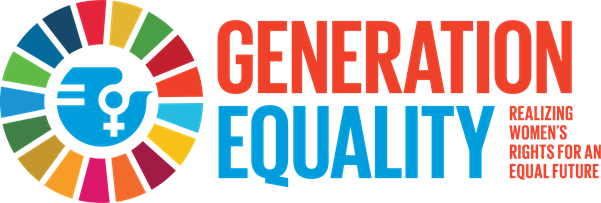




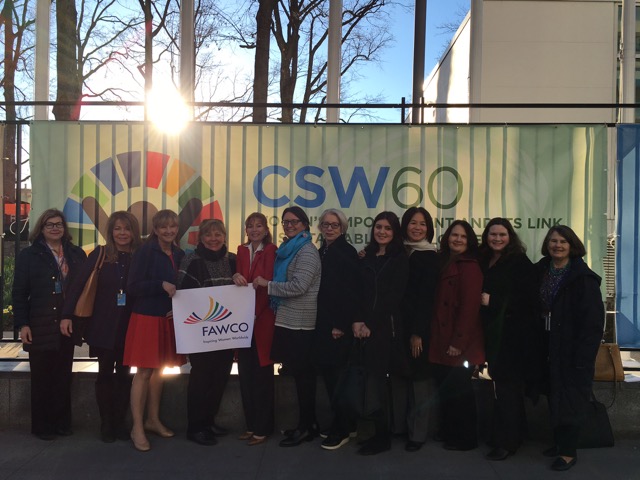
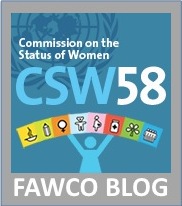 Erica Higbie and My-Linh Kunst blog from the
Erica Higbie and My-Linh Kunst blog from the 
